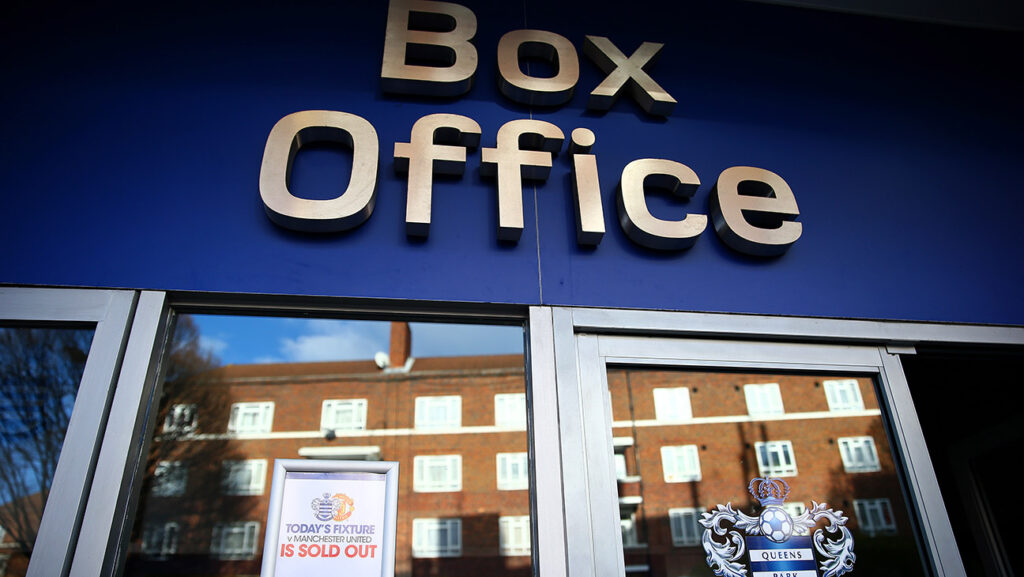The U.K. government announced plans on Wednesday to ban reselling concert and sports tickets above face value, a move officials hope will curb ticket scalping and stop fans from paying major markups on the secondary market for in-demand events.
The move represents one of the most vigorous attempts from a major concert marketplace to stop scalping, reflecting consumers’ long-held frustrations at the current state of the live music business.
“For too long, ticket touts have ripped off fans, using bots to snap up batches of tickets and resell them at sky-high prices,” culture secretary Lisa Nandy said in a statement. “They’ve become a shadow industry on resale sites, acting without consequence.”
U.K. government officials expect the move will save fans a combined 112 million pounds (about $146 million) per year, also estimating the new rule will decrease the average ticket price on resale platforms by about 37 pounds (about $48). Several artists voiced their support alongside the government on Wednesday, including Bastille lead singer Dan Smith and the rock band Alt-J.
“It’s a good step towards protecting music fans from being ripped off and will allow more genuine fans to see their favourite artists perform at face value prices,” Smith said. “I am welcoming a world where there are no more resellers snapping up all of the tickets and massively inflating their prices.”
Ed Sheeran’s manager Stuart Camp called the development “long overdue.”
“We’ve seen first-hand the positive impact of price caps elsewhere in the world, and these proposals have the potential to transform the UK’s live music sector and protect audiences from exploitation,” Camp said. “I trust they will be implemented without delay.”
The U.K. move comes amid a time of increased scrutiny on the concert business around the world. In the U.S., President Trump signed an executive order earlier this year aimed at enforcing the BOTS Act, a 2016 legislation intended to combat scalpers using bots to corner the market on concert tickets. Meanwhile, last year the Department of Justice filed an antitrust lawsuit against Live Nation, accusing the company of operating as a monopoly and calling to break up the eponymous concert promoter from ticketing giant Ticketmaster.
The FTC filed a separate lawsuit of its own earlier this year, accusing Ticketmaster of coordinating with scalpers to charge fans more on the secondary market. Live Nation has denied the allegations in both suits and voiced support for a ban on resale above face value following the news Wednesday.
“Ticketmaster already limits all resale in the UK to face value prices, and this is another major step forward for fans — cracking down on exploitative touting to help keep live events accessible,” Live Nation said. “We encourage others around the world to adopt similar fan-first policies.”
Others voicing support Wednesday were the National Independent Venue Association as well as AXS, the AEG-owned ticketing platform.
“We strongly support the UK government’s efforts to strengthen safeguards around ticket resale, which align with AXS’s longstanding practices in support of fair fan access and reduced exploitative markups,” AXS UK managing director Chris Lipscomb said in a statement. “Our own experience using identity-based ticketing, anti-bot protections, and a fan-first resale marketplace has shown that these kinds of measures reinforce trust in the ticketing process.”
The new potential ruling is of course unpopular from secondary ticketing platforms, who’ve long argued fans should be allowed to do what they wish with their tickets while also arguing outlawing resale will cause more fraud as the market would become even less regulated.
“The government’s intention to implement a price cap on the resale of live event tickets will condemn fans to take risks to see their favorite live events,” a StubHub International spokesperson told Digital Music News Wednesday. “With a price cap on regulated marketplaces, ticket transactions will move to black markets.”
Kevin Erickson, director of the D.C.-based Future of Music Coalition, called the news “a pivotal moment in the fight to protect healthy live music communities,” adding that the U.S. government should prioritize regulation on both the primary and secondary ticketing marketplaces.
“Fixing the dysfunction in live entertainment requires looking at all the pieces,” he said. “We must cap resale, create and enforce strong rules of the road to protect fans and workers, and we must break up Live Nation.”

